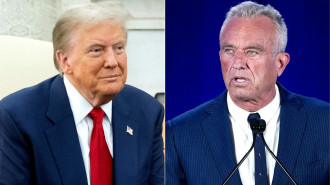OPEC oil cartel and Russia could conclude game-changing alliance
OPEC's Secretary General Mohammad Barkindo said on Wednesday that the group was seeking "very long-term" cooperation with other oil exporters.
A new pact could place controls on world oil supplies for up to 20 years -- together, OPEC and Russia account for more than 40 per cent of global oil production.
Russia most recently agreed with OPEC to cut supplies from January 2017 in response to oil prices that have fallen dramatically since 2014.
The price of brent crude peaked at $110 per barrel in 2014 before reaching a low of under $30 in 2016 -- the price now hovers around $70.
The steep price drop since 2014 has been driven by fast-rising US shale production.
Although Russia and OPEC producers have cooperated on oil production, a long-term deal of this nature would be unprecedented.
“We are working to shift from a year-to-year agreement to a 10 to 20 year agreement,” said Mohammed bin Salman, Saudi Arabia's crown prince and real ruler.
Many observers say such a move would effectively make Russia a de-facto leading OPEC member and strengthen the Kremlin's hand in the Middle East.
Already, Saudi Arabia and Russia are working to forge closer economic ties, despite the two countries backing different parties in the Syrian war.
In October, King Abdullah visited Moscow in what was the first time a sitting Saudi monarch landed in Russia.
In remarks to Reuters on Monday, Salman predicted that demand for oil would not peak until 2040. Both the demand for and price of oil are key concerns to Saudi Arabia, as the kingdom's economy depends on oil exports.
The Saudi crown prince is currently spearheading an ambitious drive to diversify Saudi Arabia's economy away from oil and gas by 2030.
Follow us on Twitter: @The_NewArab







 Follow the Middle East's top stories in English at The New Arab on Google News
Follow the Middle East's top stories in English at The New Arab on Google News

![The meeting between Musk and Iravani was 'positive', Iranian sources said [Getty]](/sites/default/files/styles/image_330x185/public/2024-11/GettyImages-2184077711.jpg?h=f5c1ac2a&itok=Wb2mIhsF)
![Dutch politicians have used harsh rhetoric against the country's Muslims following Israeli-instigated violence [Getty]](/sites/default/files/styles/image_330x185/public/2024-11/GettyImages-2184046796.jpg?h=199d8c1f&itok=3kSTEWRC)